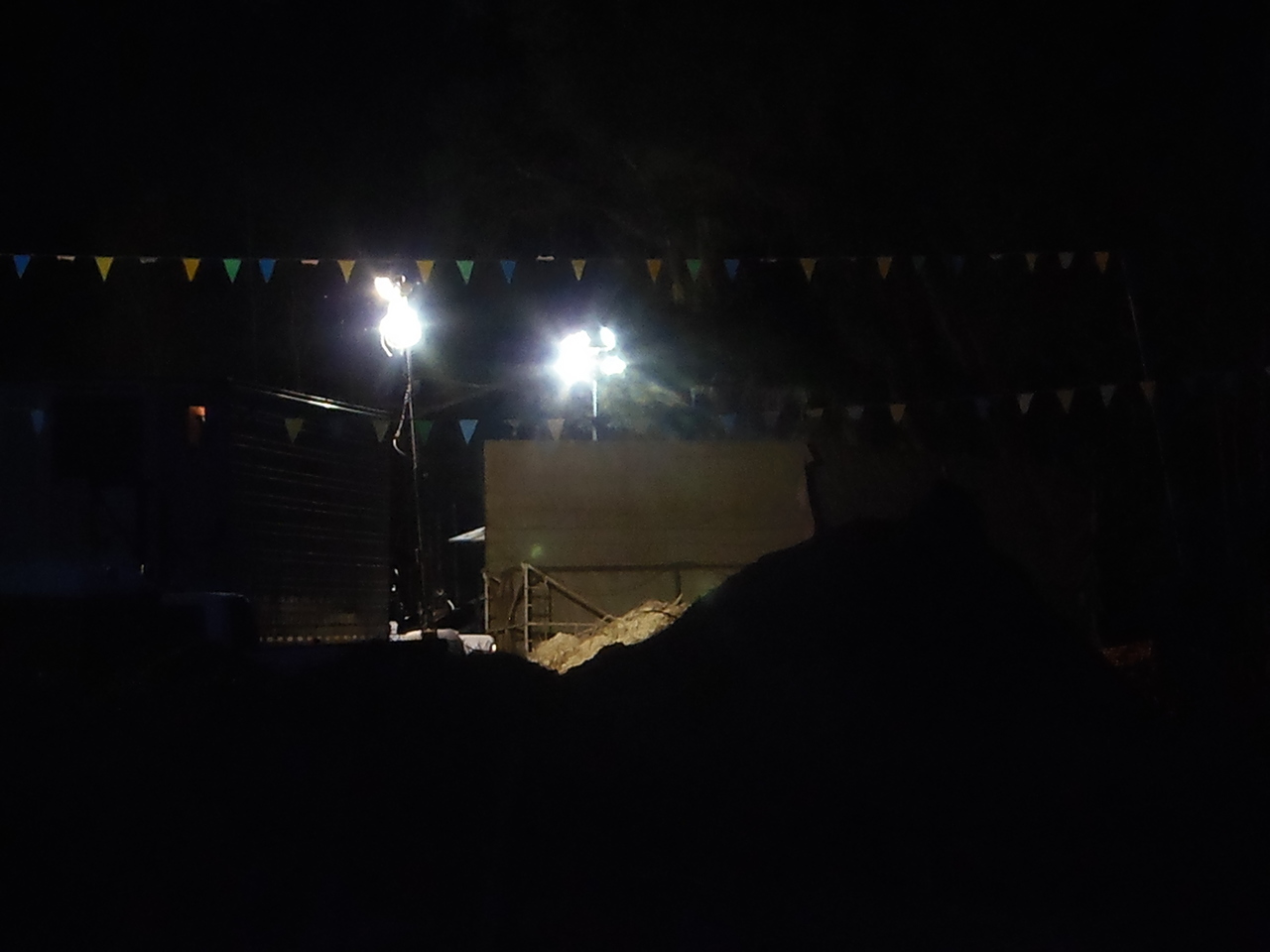Florida has a billion-dollar budget shortfall, yet the toll road task forces
are still reporting go-aheads while finding no need for their destructive projects.
Today is the last comment day to
tell the Florida Department of Transportation (FDOT) what you think about that.
Plus today you can listen to the No Roads to Ruin Coalition spell out the overwhelming public opposition to this toll roads boondoggle.
How to comment to FDOT about M-CORES:
- FDOT.Listens@dot.state.fl.us
- or use this comment form:
https://floridamcores.com/#contact-us
Just like SH 130 in Texas, these Florida toll roads would be
broke from the start,
while sucking up funds that should go to pandemic relief and to conserving Florida’s natural environment, including regular, frequent, closely-spaced water quality testing on all of Florida’s rivers.
Florida should be doing those things, not risking the Suwannee and Santa Fe Rivers, their springs, agriculture, forests, swamps, and the Floridan Aquifer for unnecessary toll roads.
![[Florida Suncoast Conector and Texas SH 130: broke from the start]](https://www.wwals.net/pictures/2020-10-14--m-cores/many.jpg)
Florida Suncoast Conector and Texas SH 130: broke from the start
Also today, the No Roads To Ruin (NRTR) coalition, of which Suwannee Riverkeeper is a charter member, will release an analysis of public comments.
After 15 months of public meetings and collecting public comment in
multiple formats for the three M-CORES task forces, the Florida
Department of Transportation (FDOT) has yet to provide, to the task
force members or the public, a complete record and accounting of
public comment submissions.
To rectify this situation, the No Roads to Ruin Coalition has
gathered, categorized, and will share and summarize those public
comments, along with the obvious probable reasons for FDOT’s lack of
transparency.
WHAT: No Roads to Ruin Coalition Zoom press conference and Facebook Live event
WHEN: October 14, 2020 at 10:30 to 11:00 a.m.
WHO: Jon Bleyer, Progress Florida Online Communications Specialist, Ryan Smart, Florida Springs Council Executive Director, and volunteer “comment counters” from across the state
WHERE: Facebook Live:
www.facebook.com/noroadstoruin
Suwannee Riverkeeper has signed on to an NRTR letter against M-CORES,
as has Waterkeepers Florida on behalf of all 14 Waterkeepers of Florida.
For why, you need go no farther than The Suncoast Corridor Task Force’s
own Study Area Overview:
![[SCC MCORES-Draft-Task-Force-Report-Sections-9.28.20-0009]](https://www.wwals.net/pictures/2020-10-14--m-cores/SCC_MCORES-Draft-Task-Force-Report-Sections-9.28.20-0009.jpg)
SCC MCORES-Draft-Task-Force-Report-Sections-9.28.20-0009
PDF
The predominately rural counties located within the Suncoast
Corridor study area contain natural resources, landscapes, and public
lands that have been highly attractive to residents and year-round
visitors for decades. This area has many unique features and natural
resources including rivers, springs, wetlands, aquifer recharge areas,
coastal areas, conservation areas, state parks, and agricultural
lands. Some notable resources include the Big Bend Seagrasses Aquatic
Preserve, the Flint Rock and Aucilla Wildlife Management Areas, the
Suwannee and Santa Fe Rivers, Blue Springs, Fanning Springs, Crystal
River, and the Goethe State Forest. The study area also contains
numerous large acreage conservation easements. These areas support
significant fish, wildlife, and plant populations including
threatened and endangered species such as the West Indian manatee,
the Florida scrub-jay, and the gopher tortoise. The study area also
includes an abundance of prime farmlands and agricultural properties
that serve both economic and environmental functions in addition to
Spring Protection and Recharge Areas, prospective Florida Forever
Lands on the current priority lists for acquisition, and Florida
Ecological Greenways Network critical linkages.
Why would we want to risk all that for an unnecessary toll road?
Even the Suncoast Connector Task Force’s own
report admits that the public comments were overwhelmingly against that toll road:
A summary of the most common comments/themes received from the public are included below.
- Concern for impacts to wildlife habitat (946 comments)
- Concern for impacts to property and rural quality of life (783 comments)
- Support to expand, improve, and maintain existing roads (421 comments)
- Need to improve and protect water resources and the aquifer (421 comments)
- Concern over project cost (367 comments)
- Need for protection and enhancement of conservation lands (356 comments)
- Support the need for jobs, economic development and business enhancements; but concern over potential negative economic impacts (269 comments)
- Concern over the cost of tolls (256 comments)
- Concern for impacts to wetlands (169 comments)
- Concern for increased water, ground, and air pollution (147 comments)
- Need for hurricane evacuation (144 comments)
- Concern over location/project alignment or route (137 comments)
- Support for multi-modal/mass transit (144 comments)
- Need for broadband (117 comments)
As many of us have pointed out, you don’t need a toll road to distribute broadband to rural areas.
Local solar panels with battery backup and more hurricane shelters make a lot more sense and would be far less expensive than a toll road encouraging mass evacuation.
Also remember
the Northern Turnpike Connector toll road boondoggle
overlaps the Suwannee River Basin in Levy County.
Please comment today!
-jsq, John S. Quarterman, Suwannee RIVERKEEPER®
You can join this fun and work by becoming a WWALS member today!
![[Letter, Mine site, Senators, Signatures]](https://www.wwals.net/pictures/2021-04-28--senators-tpm-okefenokee/many.jpg)


![[Mermaid, Suwannee Riverkeeper, OSFR, Regulatory Fallacy, Charles Keith, Attorneys, Motion to Permit, unanimous SRWMD Board]](https://www.wwals.net/pictures/2021-02-23--srwmd-nestle-pictures/many.jpg)
![[SRWMD Board: Larry Thompson, Lower Suwannee Basin; Charles Keith, At Large; Virginia H. Johns, Chair, At Large; Virginia Sanchez, At Large; Charles Schwab, Coastal Rivers Basin; Harry Smith, At Large; Larry Sessions, Upper Suwannee Basin]](https://www.wwals.net/pictures/2021-02-23--srwmd-nestle-pictures/srwmd-board.jpg)
![[Great Blue Heron, Suwannee River, Okefenokee Swamp, TPM mine site]](https://www.wwals.net/pictures/2020-11-17--gwc-dd/many.jpg)
![[TPM mine site with ONWR on left]](https://www.wwals.net/pictures/2020-11-06--tpm-drone/tpm-site-onwr-left.jpg)
![[Great Blue Heron flying, Suwannee River, Okefenokee Swamp, 2019-12-07]](https://www.wwals.net/pictures/2020-11-17--gwc-dd/2019-12-07--jsq-gbh-suwannee-river-okefenokee-with-boaters.jpg)
![[Graph 93-percent-AGAINST 10 14 20-0001]](https://www.wwals.net/pictures/2020-10-19--m-cores/Graph_93-percent-AGAINST_10_14_20-0001.jpg)
![[Protesters outside and in, and the Adel City Council split vote for the wood pellet plant]](https://www.wwals.net/pictures/2020-09-21--adel-wood-pellet-plant/wwals.jpg)
![[Pie-chart 93-percent-AGAINST 10 14 20-0001]](https://www.wwals.net/pictures/2020-10-19--m-cores/Pie-chart_93-percent-AGAINST_10_14_20-0001.jpg)
![[Florida Suncoast Conector and Texas SH 130: broke from the start]](https://www.wwals.net/pictures/2020-10-14--m-cores/many.jpg)
![[SCC MCORES-Draft-Task-Force-Report-Sections-9.28.20-0009]](https://www.wwals.net/pictures/2020-10-14--m-cores/SCC_MCORES-Draft-Task-Force-Report-Sections-9.28.20-0009.jpg)
![[Bottles]](https://www.wwals.net/pictures/2020-09-12--berrien-beach-cleanup-pictures/bottles.jpg)
![[Six cities and counties for Amendment 1]](https://www.wwals.net/pictures/2020-11-03--ga-amendment-1-trust-funds/many.jpg)